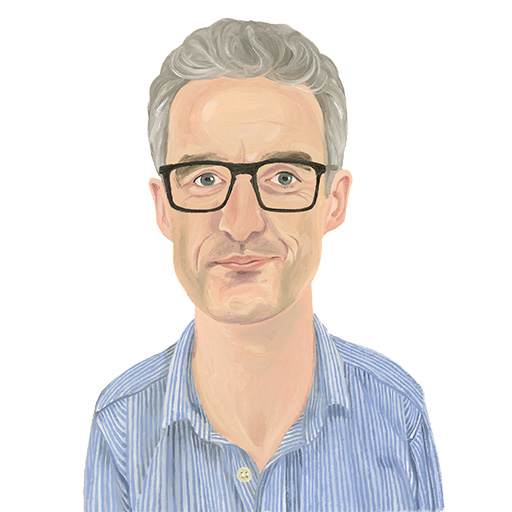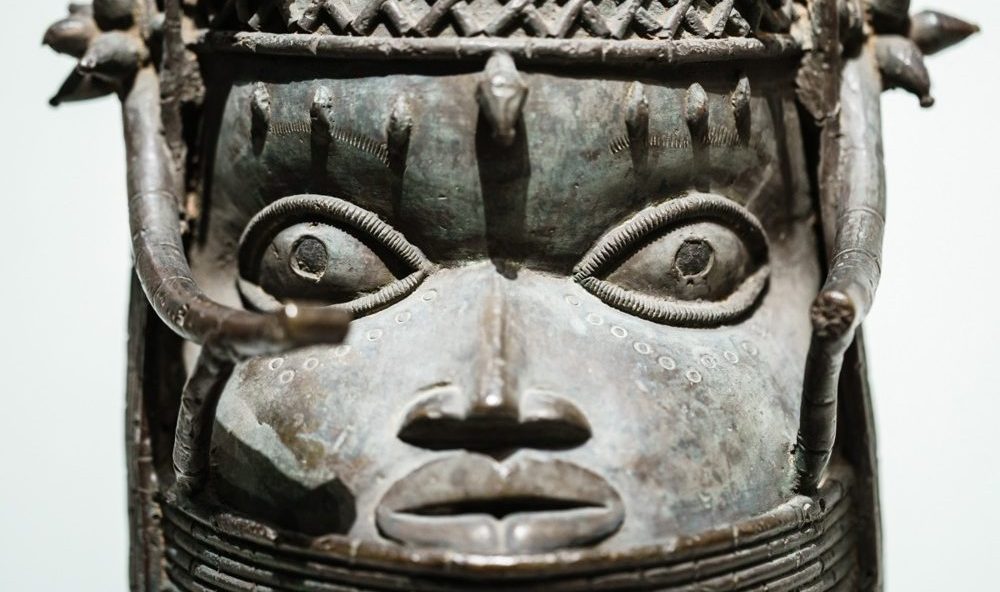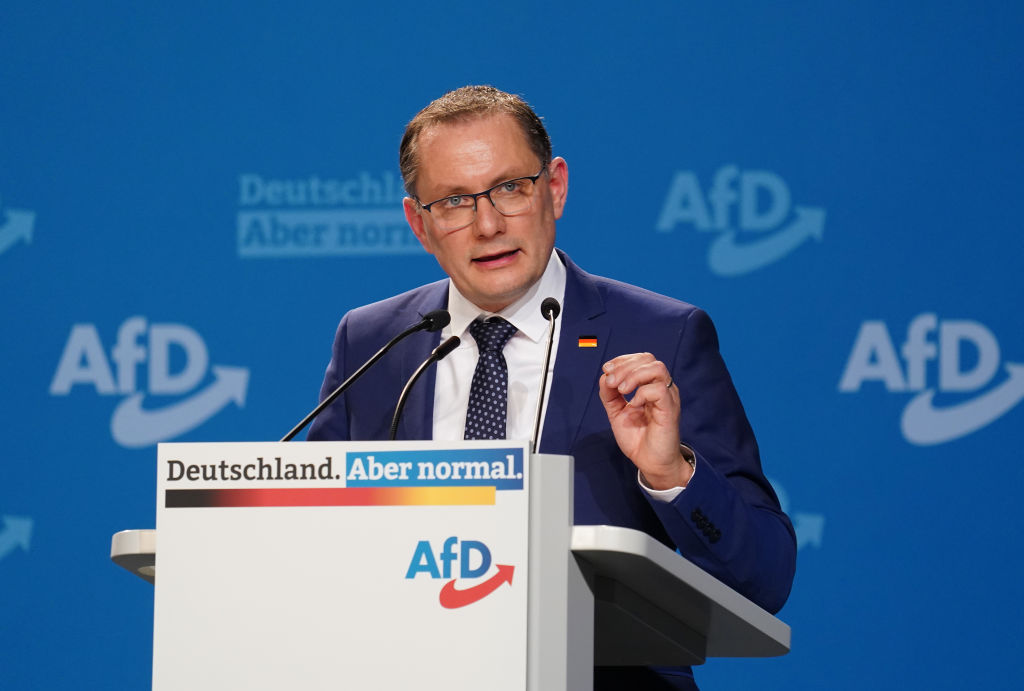The Berlin Wall was one of the starkest and most tangible emblems of the Cold War divide between East and West.
A giant concrete monstrosity, bolstered by razor wire, guard towers, death strips and arc lights, it left the German capital riven in two, as the great military forces on either side warily monitored each other. When the wall fell, Germans along with the rest of Europe rejoiced, not surprisingly.
But increasingly the Berlin Wall, in terms of its existence, appears to divide the good times from the bad times for Germany.
While the wall was up, Germany – at least in the West – was doing splendidly. Since the wall has gone, it has gradually declined and lost its way, culminating in its current torpor and disappointment.
“Germany is a dictatorship of language rules” obsessed with “wokeism and gender gaga”, Arnold Vaatz, who served as the deputy chairman of former Chancellor Angela Merkel’s Christian Democrats in Germany’s federal parliament, recently told daily newspaper Neue Zürcher Zeitung.
A one-time key supporter of Angela Merkel has alleged that Germany is now a “dictatorship” and that Merkel “pulled the plug” on the country. https://t.co/z942F0cZIz
— Brussels Signal (@brusselssignal) August 7, 2023
He attacked Merkel’s policies on energy, immigration and defence, claiming that she had ruined the country and helped embolden Russian President Vladimir Putin to invade Ukraine.
Vaatz also criticised how “all communities geared towards raising children have been discredited over the past 20 years”, so that “the normal family feels more and more like the dirt left over from times gone by”.

When East and West Germany reunited in 1990, following the “fall” of the wall in November 1989, that marked the end of the Communist German Democratic Republic regime, West Germany’s economy was enjoying a cycle of business expansion that had lasted since the early 1980s.
By 1992, Germany had one of the largest economies in the world and was a leader in world trade – all achieved while maintaining low inflation.
Even East Germany had “experienced an economic miracle of sorts” and was doing far better than the Soviet-style states of Eastern Europe.
In short, both Germanys were better off when the Berlin Wall was in place, I was repeatedly told by locals during a recent visit to Berlin.
They’d lived as “West” Germans in the Federal Republic of Germany, admittedly, as they noted themselves. Although the likelihood that “East” Germans who had lived through the GDR aren’t happy about the state of unified Germany, and agree with those “West” Germans I spoke with, is starkly suggested by the dramatic rise of the nationalist Alternative für Deutschland (AfD) party.
They appear delusional about the impact their messaging on migrants could have on German voters, and about AfD’s momentum, which they keep playing down, writes @jrfjeffrey.@lilyslynch | @Raphfel | @moutet | @JuditVarga_EUhttps://t.co/phoX7mg9D3
— Brussels Signal (@brusselssignal) July 28, 2023
AfD is polling around 20 per cent nationwide currently, due to dissatisfaction with the current coalition government, while it usually polls even higher in former East German regions such as Saxony and Thuringia.

One lady told me that even after all this time since the wall came down, reunification has not worked. The two Germanys remain disjointed from each other due to irreconcilably different mindsets; it’s just no one tends to admit it in public and, if anything, the unification of Germany continues to get worse.
“It was better with the Berlin Wall,” the lady I met reiterated.
Similarly, the Deutsche Mark – which I remember using fondly: could you have a more German-sounding currency – can seem to stand for a Germany that was more German and successful, compared to its Euro-using period that began in 2002.
There is a reason that the nationalist AfD party is campaigning – and very successfully – with an anti-EU position. Being part of the EU has, in the eyes of many Germans, not been good for Germany, with the country suffering through its role as the staging post for the post-Second World War European project.
“The EU costs Germans a fortune, robs us of our national democracy, and is pushing us towards military involvement in foreign wars,” AfD MEP @BuchheitMarkus told Brussels Signal. https://t.co/npcNVpkZI9
— Brussels Signal (@brusselssignal) June 21, 2023
“From the very outset, the unification process [was] embedded in a European and trans-Atlantic framework which [was] designed to preserve stability in Europe and dispel fears of an overpowering Germany,” notes the Everyday Life in the GDR exhibition at the Museum in der Kulturbrauerei, housed in the buildings of the former Shultheiss brewery that was once the world’s largest lager-beer brewery in former East Berlin’s Prenzlauer Berg.

You get a sense of the challenge in the internationalist, EU-shaped world view for Germany to be Germany and Germans to be Germans – and who might have the upper hand – as soon as you land in Berlin.
Gone are the three cozy old airports where you could get a nice beer and currywurst mit pommes – curry sausage with fries – right outside the terminal door. The new all-encompassing Berlin Brandenburg Airport is a huge expanse of soulless utilitarian function, a testament to its designers’ ability to make you feel like you could be anywhere in the world.
In Berlin’s city centre, you encounter a similar thing. Bland gentrification dominates: US-style burger bars and cafés, Asian noodle bars, Portuguese cafés, Italian wine bars. You have to work hard to find a German bar serving local beer and food.
Was this the promised payoff for being part of the EU?
As Vaatz notes, the AfD has earned the respect of many Germans “by addressing things that all other parties avoid out of cowardice, stupidity or opportunism”. While he maintains the party is “unelectable”, he says he understands why people want to vote for it.

“Merkel was a catastrophe for the whole of Germany,” Vaatz says. “She robbed the country of its future. She pulled the plug on Germany by ruining the energy base. She destroyed the Bundeswehr [armed forces]. She wiped the Euro’s stability criteria off the table.”
Merkel was supported and praised by the EU political and media establishment to the very end of her increasingly dubious-looking 16-year tenure. People – and not just Germans – are waking up to the fact that they were “had”.
AfD is pitching what you could call the Deutsche Mark Option instead of the Euro Option. With the latter looking increasingly discredited, what do you expect Germans to go for?






Spain’s Left could implode as Greece’s did: That might please conservatives but loss of effective opposition doesn’t help anyone